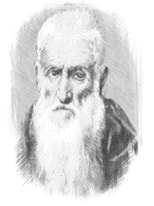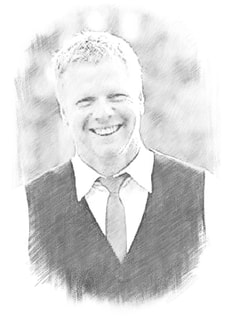Matthew 16
"The wicked generation and adulterous seeks a sign, but there shall be no sign given it, but the sign of the prophet Jonah; so he left then and departed? " The real explanation of this reference to Jonah is given by Luke (6:32), and missed or missdeveloped in Matthew (Matt 12:40). Nineveh recognized instinctively the inherent truth of Jonahs message, and repented. Truth is its own evidence--like leaven in the meal, like seed in the field, it does its work, and its life reveals it. God is known that way. When the chief priests demand of Jesus to be told plainly what is his authority (Mark 11:27), he carries the matter a stage further: Was the baptism of John, he asks, from heaven, i.e., God, or was it of men? Does God make His message clear, does He properly authenticate Himself?
|
Matthew 16:6:
“Be careful,” Jesus said to them. “Be on your guard against the yeast of the Pharisees and Sadducees.” |
A Clay Jar: Guard Against the Yeast of the Pharisees – Matthew 16:6
Yeast is a single-celled microorganism that feeds on carbohydrates and produces fermentation. It is used in baking to make bread rise and in brewing some types of alcohol. |

Pulpit Commentary:
Verse 19. - I will give unto thee the keys of the kingdom of heaven. The metaphor of a house or castle, with its gates that must be opened with keys, is still maintained; or else the idea is of the exercise of a stewardship in a household. But the latter seems unnecessarily to introduce a new notion, and to mar the concinnity of the passage. In Isaiah 22:22 we read, "The key of the house of David will I lay upon his shoulder; and he shall open, and none shall shut; and he shall shut, and none shall open" - where the figure is similar. The delivery of the keys of a city, etc., to a person, symbolizes the handing over of the authority to that person. "The kingdom of heaven" means here the visible Church of Christ in its most extended form. In this Church, hereafter to be constituted, Peter personally is promised a certain authority. This is a personal reward for his good confession, and a prediction of the way in which he was to exercise it. At the same time, there is a change in the figure used. He who was the foundation of the Church is now its overseer, and may open or shut its doors, may admit or exclude whomsoever he will, always following the guidance of the inspiring Spirit. This promise was fulfilled after the Day of Pentecost. It seems to have been at this time only promised, not conferred upon Peter. The actual gift of the power to him and his brother apostles took place after the Resurrection, as we read in John 20:22. The "power of the keys," as it is called, is considered to have two branches - a legislative power and an absolving power. The former Peter exercised when he took the lead after the effusion of the Spirit, and opened the door to the Jews. It was his action that admitted the Gentiles, without compliance with the distinctive rites of Judaism, to all the privileges of the gospel (see Acts 15:7). This most momentous precedent he established and made good for all time. These were legislative acts which he had the honour of introducing, and which, thus inaugurated, upheld, and defended by him, tended to advance that unity which the Lord held so dear. As an instance of his shutting the door of the kingdom in the face of an impious intruder, we may notice his rebuke to Simon Magus (Acts 8:21), "Thou hast neither part nor lot in this matter." The absolving power, supposed to be contained in the gift of the keys, seems rather to belong to the terms of the succeeding promise. We conceive that this power was first given to St. Peter in acknowledgment of his good confession, and as an emblem of unity, and was afterwards bestowed on all the apostles. That the Fathers did not regard it as limited exclusively to Peter, may he seen by quotations gathered by Wordsworth and other commentators. Thus Tertullian, 'Scorpiac.,' 10, "Memento claves hic Dominum Petro, et per illum Ecclesiae reliquisse;" St. Cyprian, 'De Unit.,' p. 107, "Apostolis omnibus post resurrectionem suam parem potestatem tribuit;" St. Augustine, 'Serm.,' 295, "Has claves non homo unus, sed unitas accepit Ecclcsiae." Whatsoever thou shalt bind on earth, etc. "Binding" and "loosing" has been explained in various ways. Some say the terms mean admitting or debarring from the Church, which would make them identical with the power of the keys, and would give no additional privilege; whereas it is plain that further honour is intended to be bestowed. Others affirm that the expression is to be understood of absolution from sin. They take the metaphor to be derived from a prisoner and his chain. Sinners are tied and bound with the chain of their sins; they are released on repentance by the ministry of reconciliation (2 Corinthians 5:18, 19); they are bound, when the means of grace are withheld from them, owing to the absence of tokens of' sincerity and faith. This is the view taken in the Anglican Ordinal, where to the priest it is solemnly said, "Whose sins thou dost forgive, they are forgiven; and whose sins thou dost retain, they are retained." But this was no special gift to Peter; it was bestowed not long after upon all the apostolic body in the very same terms (Matthew 18:18), and was indeed inherent in the ministry. This interpretation also introduces a new element into the promise, which does not agree with the context. There is nothing to lead one to expect such an item, and to supply "sins" to the general term "whatsoever" twice repeated, is harsh and unnatural. A more reasonable explanation of the phrase is derived from the use of the terms among the Jews themselves. In their Talmudic glosses we find equivalent expressions. "To bind" is to forbid, to pronounce unlawful; "to loose" is to allow, to declare lawful. And the Lord here promises Peter a certain pre-eminence in the government and organization of the Church, and that the rules which he ordained and the sentences which he should pass in the due exercise of his apostolical authority, should be ratified and confirmed in heaven (Burgon). The phrase is found in Josephus, expressive of the possession, of unrestricted authority. Thus he speaks of the Pharisees as having power to loose and bind (λύειν τε καὶ δεῖν) whom they would ('Bell. Jud.,' 1:05. 2). And it is noted that an inscription upon a statue of Isis reads, "I am the queen of the country, and whatsoever I bind no man can loose" (Diod. Sic., 1:27). This is a personal distinction conferred on St. Peter in the exercise of an office common to all the apostles, it was needful, in the early Church, that one should be chosen, primus inter pares, to be the chief office bearer and leader of the body of believers. Not that he conceived himself to be, or was recognized by others as, infallible, or as an irresponsible despot; many events before and after Pentecost forbid such an assumption; but his faith, character, and zeal pointed him out as well constituted to regulate and order the infant community, and to take the first part in maintaining that unity which was essential to the new kingdom. This personal primacy may justly be conceded, even by those who are most inimical to the arrogant claims of the papacy; for it carries not with it the consequences which have been appended. Precedence in rank does not of necessity involve supreme or even superior authority. A duke has no authority over a baron, though he has precedence. The fuller consideration of this sphere of the subject belongs rather to the historian and the polemist than to the expositor, and to such we leave it, only adding that, in his peculiar privilege, Peter stands alone, and that in his extraordinary power he had, and was intended to have, no successors.
Verse 19. - I will give unto thee the keys of the kingdom of heaven. The metaphor of a house or castle, with its gates that must be opened with keys, is still maintained; or else the idea is of the exercise of a stewardship in a household. But the latter seems unnecessarily to introduce a new notion, and to mar the concinnity of the passage. In Isaiah 22:22 we read, "The key of the house of David will I lay upon his shoulder; and he shall open, and none shall shut; and he shall shut, and none shall open" - where the figure is similar. The delivery of the keys of a city, etc., to a person, symbolizes the handing over of the authority to that person. "The kingdom of heaven" means here the visible Church of Christ in its most extended form. In this Church, hereafter to be constituted, Peter personally is promised a certain authority. This is a personal reward for his good confession, and a prediction of the way in which he was to exercise it. At the same time, there is a change in the figure used. He who was the foundation of the Church is now its overseer, and may open or shut its doors, may admit or exclude whomsoever he will, always following the guidance of the inspiring Spirit. This promise was fulfilled after the Day of Pentecost. It seems to have been at this time only promised, not conferred upon Peter. The actual gift of the power to him and his brother apostles took place after the Resurrection, as we read in John 20:22. The "power of the keys," as it is called, is considered to have two branches - a legislative power and an absolving power. The former Peter exercised when he took the lead after the effusion of the Spirit, and opened the door to the Jews. It was his action that admitted the Gentiles, without compliance with the distinctive rites of Judaism, to all the privileges of the gospel (see Acts 15:7). This most momentous precedent he established and made good for all time. These were legislative acts which he had the honour of introducing, and which, thus inaugurated, upheld, and defended by him, tended to advance that unity which the Lord held so dear. As an instance of his shutting the door of the kingdom in the face of an impious intruder, we may notice his rebuke to Simon Magus (Acts 8:21), "Thou hast neither part nor lot in this matter." The absolving power, supposed to be contained in the gift of the keys, seems rather to belong to the terms of the succeeding promise. We conceive that this power was first given to St. Peter in acknowledgment of his good confession, and as an emblem of unity, and was afterwards bestowed on all the apostles. That the Fathers did not regard it as limited exclusively to Peter, may he seen by quotations gathered by Wordsworth and other commentators. Thus Tertullian, 'Scorpiac.,' 10, "Memento claves hic Dominum Petro, et per illum Ecclesiae reliquisse;" St. Cyprian, 'De Unit.,' p. 107, "Apostolis omnibus post resurrectionem suam parem potestatem tribuit;" St. Augustine, 'Serm.,' 295, "Has claves non homo unus, sed unitas accepit Ecclcsiae." Whatsoever thou shalt bind on earth, etc. "Binding" and "loosing" has been explained in various ways. Some say the terms mean admitting or debarring from the Church, which would make them identical with the power of the keys, and would give no additional privilege; whereas it is plain that further honour is intended to be bestowed. Others affirm that the expression is to be understood of absolution from sin. They take the metaphor to be derived from a prisoner and his chain. Sinners are tied and bound with the chain of their sins; they are released on repentance by the ministry of reconciliation (2 Corinthians 5:18, 19); they are bound, when the means of grace are withheld from them, owing to the absence of tokens of' sincerity and faith. This is the view taken in the Anglican Ordinal, where to the priest it is solemnly said, "Whose sins thou dost forgive, they are forgiven; and whose sins thou dost retain, they are retained." But this was no special gift to Peter; it was bestowed not long after upon all the apostolic body in the very same terms (Matthew 18:18), and was indeed inherent in the ministry. This interpretation also introduces a new element into the promise, which does not agree with the context. There is nothing to lead one to expect such an item, and to supply "sins" to the general term "whatsoever" twice repeated, is harsh and unnatural. A more reasonable explanation of the phrase is derived from the use of the terms among the Jews themselves. In their Talmudic glosses we find equivalent expressions. "To bind" is to forbid, to pronounce unlawful; "to loose" is to allow, to declare lawful. And the Lord here promises Peter a certain pre-eminence in the government and organization of the Church, and that the rules which he ordained and the sentences which he should pass in the due exercise of his apostolical authority, should be ratified and confirmed in heaven (Burgon). The phrase is found in Josephus, expressive of the possession, of unrestricted authority. Thus he speaks of the Pharisees as having power to loose and bind (λύειν τε καὶ δεῖν) whom they would ('Bell. Jud.,' 1:05. 2). And it is noted that an inscription upon a statue of Isis reads, "I am the queen of the country, and whatsoever I bind no man can loose" (Diod. Sic., 1:27). This is a personal distinction conferred on St. Peter in the exercise of an office common to all the apostles, it was needful, in the early Church, that one should be chosen, primus inter pares, to be the chief office bearer and leader of the body of believers. Not that he conceived himself to be, or was recognized by others as, infallible, or as an irresponsible despot; many events before and after Pentecost forbid such an assumption; but his faith, character, and zeal pointed him out as well constituted to regulate and order the infant community, and to take the first part in maintaining that unity which was essential to the new kingdom. This personal primacy may justly be conceded, even by those who are most inimical to the arrogant claims of the papacy; for it carries not with it the consequences which have been appended. Precedence in rank does not of necessity involve supreme or even superior authority. A duke has no authority over a baron, though he has precedence. The fuller consideration of this sphere of the subject belongs rather to the historian and the polemist than to the expositor, and to such we leave it, only adding that, in his peculiar privilege, Peter stands alone, and that in his extraordinary power he had, and was intended to have, no successors.
|
Matthew 16:22-23 Then Peter took him, and began to rebuke him, saying, Be it far from thee, Lord: this shall not be unto thee. But he turned, and said unto Peter, Get thee behind me, Satan: thou art an offence unto me: for thou savourest not the things that be of God, but those that be of men.
|

Paul says we do: “We take captive every thought to make it obedient to Christ” (2 Corinthians 10:5).
Do you hear some battlefield jargon in that passage —”take captive every thought,” “make it obedient to Christ”? You get the impression that we are the soldiers and the thoughts are the enemies. Our assignment is to protect the boat and refuse entrance to trashy thoughts. The minute they appear on the dock we go into action. “This heart belongs to God,” we declare, “and you aren’t getting on board until you change your allegiance.” Selfishness, step back! Envy, get lost! Find another boat, Anger! You aren’t allowed on this ship. Capturing thoughts is serious business. It was for Jesus. Remember the thoughts that came his way courtesy of the mouth of Peter? Jesus had just prophesied his death, burial, and resurrection, but Peter couldn’t bear the thought of it. “Peter took him aside and began to rebuke him . . . Jesus turned and said to Peter, ‘Get behind me, Satan! You are a stumbling block to me; you do not have in mind the concerns of God, but merely human concerns’ ” (Matthew 16:22–23). See the decisiveness of Jesus? A trashy thought comes his way. He is tempted to entertain it. A cross-less life would be nice. But what does he do? He stands at the gangplank of the dock and says, “Get away from me.” As if to say, “You are not allowed to enter my mind.” What if you did that? What if you took every thought captive? What if you refused to let any trash enter your mind? What if you took the counsel of Solomon: “Above all else, guard your heart, for everything you do flows from it” (Proverbs 4:23). --NIV Bible: Take Every Thought Captive |
|
Matthew 16:24-26:
24 Then Jesus told his disciples, “If anyone would come after me, let him deny himself and take up his cross and follow me. 25 For whoever would save his life will lose it, but whoever loses his life for my sake will find it. 26 For what will it profit a man if he gains the whole world and forfeits his soul? Or what shall a man give in return for his soul? |
 Charles Solomon
Charles Solomon
The self centered Christian is abnormal in God's economy. When the Word speaks of a believe and his resources in Christ, it is assumed that Christ is central in the life. However, the Christian who appropriated Christ as his life today is the exception rather the rule.
--Charles Solomon; The Ins and Outs of Rejection
--Charles Solomon; The Ins and Outs of Rejection
 Thomas Watson
Thomas Watson
“A contented Christian does not seek to choose his cross but leaves God to choose for him. He is content with both for the kind and the duration. A contented spirit says, 'let God apply what medicine he pleases and let it remain as long as it will, I know that when it has done it's cure and eaten the venom of sin out of my heart, God will take it off again.”
― Thomas Watson, The Art of Divine Contentment
 Jean-Yves LeLoup
Jean-Yves LeLoup
“Sometimes we must undergo hardships, breakups, and narcissistic wounds, which shatter the flattering image that we had of ourselves, in order to discover two truths: that we are not who we thought we were; and that the loss of a cherished pleasure is not necessarily the loss of true happiness and well-being.”
― Jean-Yves Leloup, Compassion and Meditation: The Spiritual Dynamic between Buddhism and Christianity
 Jerome of Stridon Files
Jerome of Stridon Files
“For it is good to cleave to God, and to put our hopes in the Lord, so that, when we have exchanged this poor life for the kingdom of heaven, we may cry aloud: 'Whom have I in heaven but thee? There is none upon earth that I desire beside thee.' Assuredly, when we have found such wealth in heaven, we may well grieve to have sought after poor passing pleasures here on earth.”
― St. Jerome, Select Letters
― St. Jerome, Select Letters













